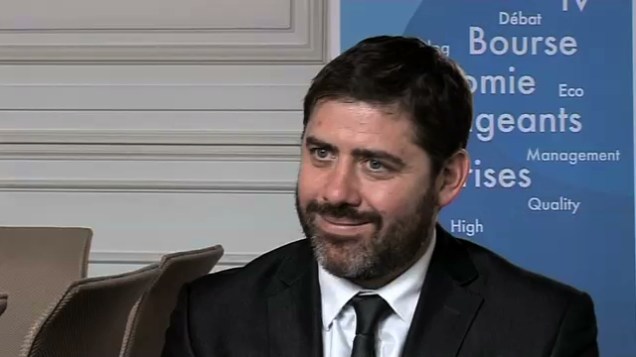
Marc Delcourt, co-founder and Chief Executive Officer of Global Bioenergies, has clear ideas: “Our aim is to take advantage of the existing infrastructures of the petrochemical industry by producing exactly the same molecules through sustainable processes. By this way, the end of oil will not mean the end of the existing industrial world”.
His company is one of the most dynamic industrial biology companies in Europe. It is developing more efficient ways to convert renewable resources such as agricultural waste, sugar and starch into chemical key building blocks and drop-in fuels, drastically decreasing C02 emissions as well as generating new jobs in rural areas.
After his scientific training (Ecole Normale Supérieure, PhD in Molecular Biology in Canada), Delcourt turns towards R&D activities in the field of bioprocesses and founds in 1997 the industrial biotech company Biométhodes. He leaves Biométhodes in 2008 to found Global Bioenergies. In this interview we talk with him about Global Bioenergies and the bioeconomy.
Interview by Mario Bonaccorso
Mr Delcourt, what motivated you to found Global Bioenergies?
Scientific challenge in a field (energy and chemistry transition) on top of the agenda for the next decades.
What is exactly your business?
Developing processes to convert renewable resources (sugar, cereals, agricultural waste) into gaseous olefins, a family of molecules lying at the heart of the petrochemical industry, with markets in tenth of billion dollars.
You produce butadiene and isobutene from renewable sources. Why the use of biological resources is so important for the chemical industry?
Our aim is to take advantage of the existing infrastructures of the petrochemical industry by producing exactly the same molecules through sustainable processes. By this way, the end of oil will not mean the end of the existing industrial world.
What are your next goals?
Industrialize our most advanced process, targeting isobutene. We already have a first pilot plant up and running, with a yearly capacity of 10 tons per year.
And replicate this first success to other light olefins, and in particular to butadiene and propylene.
Global Bioenergies is a French company. From your point of view, is aware the French government of the strategic importance of the bioeconomy for the next economic development of the country?
Global Bioenergies has received a 4M€ public financing last year from the French State. More generally, we consider that France is taking industrial biology very seriously, because agriculture is among the strengths of France, and because microbiology is a strong scientific field in France since the Louis Pasteur days.